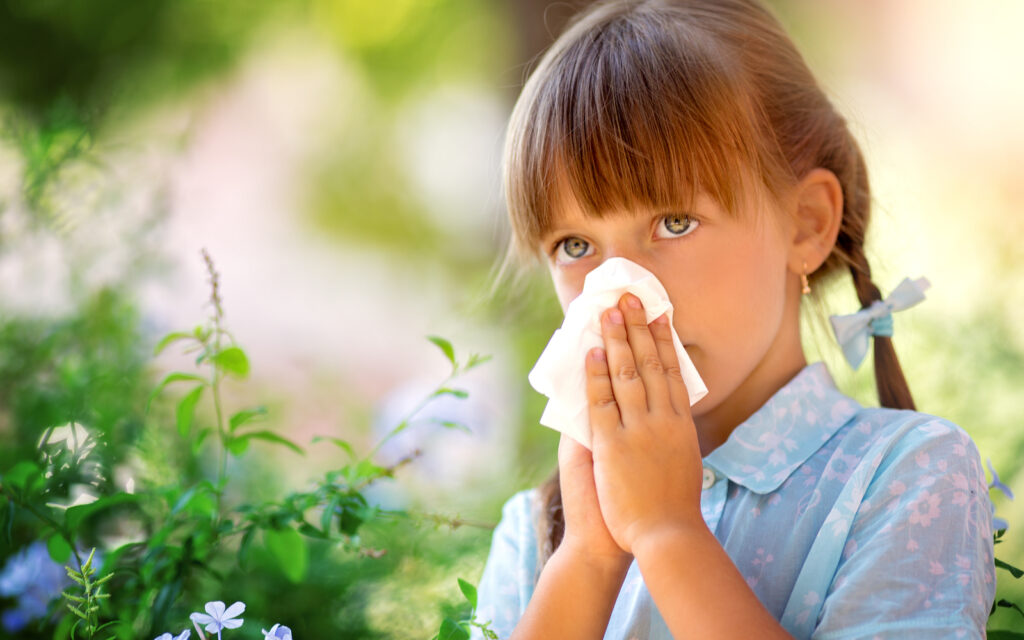Introduction
When allergy season is on its way, you may not be spending a lot of time thinking about your dental health. You may be surprised to learn that hay fever can have an impact on your gums and teeth. Thankfully there are warning signs to watch out for. You can also take steps to help prevent the consequences of allergies for your teeth. We’re going to give you an allergy season survival guide to help protect your teeth from damage and decay.
Understanding How Allergies Can Impact Your Oral Health
Your oral health isn’t being impacted directly by your allergies. The pollen and dust aren’t actively attacking your teeth. Instead, it’s the side-effects of suffering from allergies that can cause problems. Consider the following symptoms of allergies and how they can affect your oral health.
- Sore Throat – Post-nasal drip is a common consequence of allergies. One possible consequence of this condition is bad breath. Brushing your teeth won’t help you here, unfortunately.
- Dry Mouth – There are two primary causes of dry mouth from allergies. Congested sinuses can make breathing through the nose difficult. As a result, you may switch to breathing through your mouth. This habit can lead to dry mouth. Antihistamines are also known to cause dry mouth as a side effect. Saliva is an essential defense against the bacteria that cause tooth decay. They thrive in dry-mouth environments.
- Tooth Pain – If you’re experiencing tooth pain during allergy season, it may not be from cavities. The pressure that gathers in your sinuses can affect your gums and teeth. As your sinuses become inflamed and congested, this pressure can push on your molars. You may notice that the pain changes as you move around. You may also experience temperature sensitivity.
Tips we have to help
Thankfully there are some tips we have to help you address these concerns. Following them may not be a cure-all but can ease your symptoms.
- Hydration – Staying hydrated can help address a lot of the concerns listed above. Along with preventing dry mouth, it can also help flush out mucus.
- Gargle With Salt Water – Dissolving a little salt in warm water and gargling with it can help. The salt will help pull mucus out of your sinuses, easing pressure. It also can combat the bacteria that are responsible for plaque and bad breath.
- Consistent Hygiene – Brushing and flossing regularly can help as well. The minty nature of toothpaste can bring some relief. These practices also ensure that you mitigate the damage from dry mouth.
- Treat Allergies – Stay on top of your allergy treatments to ease symptoms.
These tips will help make the situation more manageable.
Rely On Your Dental Experts
The last and most important thing you can do is speak to your dentist. They have a lot of experience helping patients with allergies manage their dental health. Their understanding of your struggle and medical experience can provide unexpected solutions. Even if they can’t help with your allergies, they can ensure that your teeth survive allergy season. They’re your best defense against the damage life during allergy season can do to your teeth.
When allergy season is on its way, you may not be spending a lot of time thinking about your dental health. You may be surprised to learn that hay fever can have an impact on your gums and teeth. Thankfully there are warning signs to watch out for. You can also take steps to help prevent the consequences of allergies for your teeth. We’re going to give you an allergy season survival guide to help protect your teeth from damage and decay.
Understanding How Allergies Can Impact Your Oral Health
Your oral health isn’t being impacted directly by your allergies. The pollen and dust aren’t actively attacking your teeth. Instead, it’s the side-effects of suffering from allergies that can cause problems. Consider the following symptoms of allergies and how they can affect your oral health.
- Sore Throat – Post-nasal drip is a common consequence of allergies. One possible consequence of this condition is bad breath. Brushing your teeth won’t help you here, unfortunately.
- Dry Mouth – There are two primary causes of dry mouth from allergies. Congested sinuses can make breathing through the nose difficult. As a result, you may switch to breathing through your mouth. This habit can lead to dry mouth. Antihistamines are also known to cause dry mouth as a side effect. Saliva is an essential defense against the bacteria that cause tooth decay. They thrive in dry-mouth environments.
- Tooth Pain – If you’re experiencing tooth pain during allergy season, it may not be from cavities. The pressure that gathers in your sinuses can affect your gums and teeth. As your sinuses become inflamed and congested, this pressure can push on your molars. You may notice that the pain changes as you move around. You may also experience temperature sensitivity.
Thankfully there are some tips we have to help you address these concerns. Following them may not be a cure-all but can ease your symptoms.
- Hydration – Staying hydrated can help address a lot of the concerns listed above. Along with preventing dry mouth, it can also help flush out mucus.
- Gargle With Salt Water – Dissolving a little salt in warm water and gargling with it can help. The salt will help pull mucus out of your sinuses, easing pressure. It also can combat the bacteria that are responsible for plaque and bad breath.
- Consistent Hygiene – Brushing and flossing regularly can help as well. The minty nature of toothpaste can bring some relief. These practices also ensure that you mitigate the damage from dry mouth.
- Treat Allergies – Stay on top of your allergy treatments to ease symptoms.
These tips will help make the situation more manageable.
Rely On Your Dental Experts
The last and most important thing you can do is speak to your dentist. They have a lot of experience helping patients with allergies manage their dental health. Their understanding of your struggle and medical experience can provide unexpected solutions. Even if they can’t help with your allergies, they can ensure that your teeth survive allergy season. They’re your best defense against the damage life during allergy season can do to your teeth.
-0





















